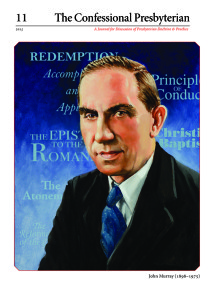 McGraw, Ryan, trans. “Johannes Wollebius’s Paecognita of Christian Theology from Compendiusm Theologiae Christianae,” Confessional Presbyterian 11 (2015).
McGraw, Ryan, trans. “Johannes Wollebius’s Paecognita of Christian Theology from Compendiusm Theologiae Christianae,” Confessional Presbyterian 11 (2015).
Excellent discussion of the definition and nature of theology along with a defense of canonical Scripture as the sufficient and final theological authority.
Burer, Michael. “ΈΠΙΣΗΜΟΙ ΈΝ ΤΟΙΣ ΆΠΟΣΤΟΛΟΙΣ in Rom 16:7 as ‘Well Known to the Apostles’: Further Defense and New Evidence,” JETS 58, no. 4 (December 2015): 731-55.
 The thesis of Burer and Wallace in their NTS article is that one should take “ἐπίσημος genitive as inclusive (e.g., ‘notable among’)” and ἐπίσημος plus (ἐν plus) dative as exclusive (e.g., ‘well known to’).” (JETS 58, no. 4, p. 755). In his JETS article Burer responds to critiques of their thesis to show that it still holds and brings forth additional evidence from Greek literature to demonstrate that this pattern holds.
The thesis of Burer and Wallace in their NTS article is that one should take “ἐπίσημος genitive as inclusive (e.g., ‘notable among’)” and ἐπίσημος plus (ἐν plus) dative as exclusive (e.g., ‘well known to’).” (JETS 58, no. 4, p. 755). In his JETS article Burer responds to critiques of their thesis to show that it still holds and brings forth additional evidence from Greek literature to demonstrate that this pattern holds.

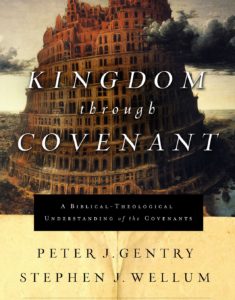 In this volume Wellum and Gentry embark on the ambitious project of laying out a third way between covenant theology and dispensationalism. They label their position New Covenant Theology or Progressive Covenantalism (others who hold a similar position are Tom Wells, Fred Zaspel, John Reisinger, Thomas Schreiner, and Jason Meyer). [Update 4/21/16: The authors wish to distinguish PC from NCT. The two share some similarities, but they do not wish them to be equated. Since Schreiner and Meyer both contribute to the new book on
In this volume Wellum and Gentry embark on the ambitious project of laying out a third way between covenant theology and dispensationalism. They label their position New Covenant Theology or Progressive Covenantalism (others who hold a similar position are Tom Wells, Fred Zaspel, John Reisinger, Thomas Schreiner, and Jason Meyer). [Update 4/21/16: The authors wish to distinguish PC from NCT. The two share some similarities, but they do not wish them to be equated. Since Schreiner and Meyer both contribute to the new book on 
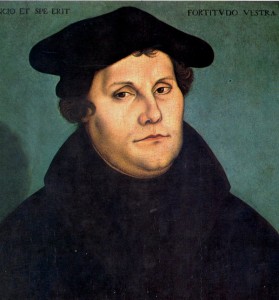
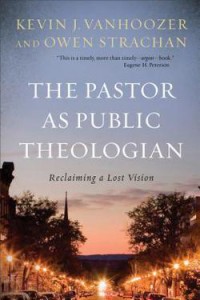 There are certain books whose effect largely depends on the time in life when you read them. For instance, I’d say that Frank Thielman’s Paul and the Law: A Contextual Approach was one of the most significant books that I read while in seminary. It was while reading that book that I understood for the first time the significance of the biblical covenants. I know that I had read about the covenants before, but their role in Scripture and my relation to them clicked for the first time while reading Thielman. That book may not have been as significant to my thinking had I already developed my thinking on the covenants and on the Mosaic Law. I have the sense that Vanhoozer and Strachan’s could have a similar effect on a seminarian or pastor—it could reshape the way they think about ministry. Others will already share their vision, making the book less significant to them.
There are certain books whose effect largely depends on the time in life when you read them. For instance, I’d say that Frank Thielman’s Paul and the Law: A Contextual Approach was one of the most significant books that I read while in seminary. It was while reading that book that I understood for the first time the significance of the biblical covenants. I know that I had read about the covenants before, but their role in Scripture and my relation to them clicked for the first time while reading Thielman. That book may not have been as significant to my thinking had I already developed my thinking on the covenants and on the Mosaic Law. I have the sense that Vanhoozer and Strachan’s could have a similar effect on a seminarian or pastor—it could reshape the way they think about ministry. Others will already share their vision, making the book less significant to them.
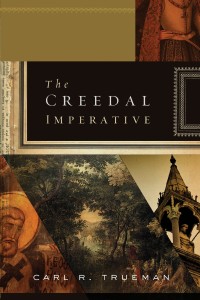 One question I face in class as a church historian is, ‘If doctrine develops, does this mean that what unites us to Christ changes over time too?’ This is an excellent question and, indeed, a rather obvious one when one is investigating the history of doctrine. Two things need to be borne in mind here.
One question I face in class as a church historian is, ‘If doctrine develops, does this mean that what unites us to Christ changes over time too?’ This is an excellent question and, indeed, a rather obvious one when one is investigating the history of doctrine. Two things need to be borne in mind here.